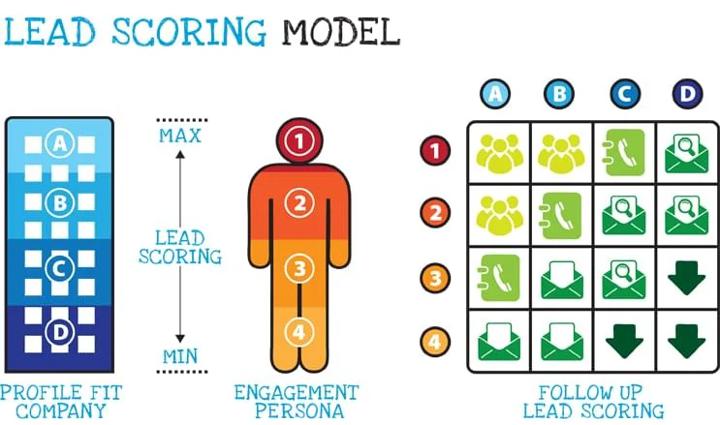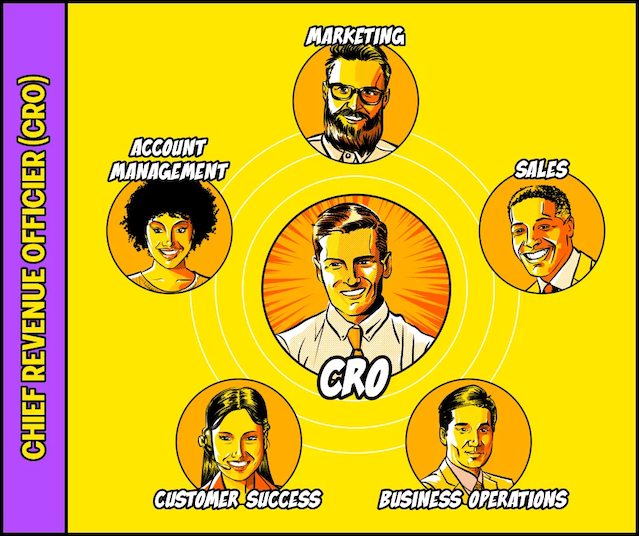Most people are unaware of this, but over 70% of leads are lost due to inadequate follow-up practices.
A company would see incredible potential growth opportunities by reducing this number by just a few percentage points. Ranking leads based on their probability to close seems like an obvious way to improve this metric.
If your team is only following up with the cream of the crop, instead of anything and everything that gets thrown over the fence, there should be no excuse for rigorous follow-up.
This is where lead scoring becomes an essential part of your operations.

As a concept, lead scoring is quite simply a prioritization engine, and—if done correctly—it will fuel your company’s revenue acceleration.
But how should you do it? And where should you start? At the end of the day, what you need is solid know-how of the basic concepts and an understanding of the potential it can bring to your startup. And obviously, the right technology to put the lead scoring system you create on steroids.
These are the topics we’ll cover in this article:
- What is lead scoring & how to rank your leads
- Why lead scoring is crucial to your business
- The secrets you need to know to win with lead scoring
Are you ready? Let’s dive in!
What is lead scoring & how do I rank leads?
At its core, lead scoring is the practice of ranking prospective customers by key criteria to help you determine how likely they are to take the desired action.

Knowing this information can be beneficial to your business in many ways. For example, it can help your sales team determine which leads they should reach out to first and most aggressively.
Lead scoring is most powerful when based on a co-dynamic approach. Co-dynamic models score both fit, how well a customer matches your ideal customer profile (ICP), and activity, or how engaged a lead is with your brand.
The use of these two factors will give you a custom score for each prospect that indicates their potential to convert.

A good lead scoring system will allow your sales team to stop wasting time with prospects who are not ready to buy. Instead, they’ll focus on the prospects in the right stage of the customer journey who only need a small push to become a closed-won deal.
Why is lead scoring crucial to your business?
Research shows that 68% of marketers considered lead scoring to be one of the biggest contributors to their revenue, with a 77% higher lead generation ROI than without it.
According to information from Aberdeen Research, businesses that successfully used lead scoring have seen a higher average lead qualification rate than their competitors.
These are just some of several studies that show the benefits of using lead scoring, despite these amazing benefits additional research shows that around 66% to 81% of businesses still do not utilize lead scoring.
Moreover, when it comes to B2B companies specifically, only about 21% use some type of lead scoring, which presents a solid opportunity to gain a competitive advantage.
Are you getting worked up yet with the amount of opportunity here?
Benefits of lead scoring
The primary benefit of good lead scoring should be clear by now: more revenue. More revenue on its own is great. And then there are related benefits, including:
- Increased sales efficiency
- Marketing optimization
- Improved operational alignment
When you take all of this into account, you start to realize that not only are you growing your topline number, but much more of that revenue is flowing down to your bottom line.
It’s amazing to think you can pull this off simply by having a better understanding of which leads are more likely to convert. More amazing yet, is that the solution has been around for quite some time in the form of lead scoring.
If more revenue and increased profitability aren’t reason enough to implement lead scoring let’s double click on the benefits to your internal processes that a well-oiled lead scoring system has. Benefits that put you on the path to revenue acceleration.

When a clearly defined lead scoring model drives your process, both sales and marketing teams will be significantly more aligned, which will allow sales to focus on the sales motion, while marketing can focus on optimizing demand generation activities to fill the funnel with more high-quality leads.
The sales team will no longer need to waste precious time following through with leads that won’t convert, second-guessing why they are getting a lead, or trying to figure out which lead to prioritize. This is because a lead scoring system works like a filter that will do the majority of the heavy lifting in this regard.
As a result, the overall sales cycle will become vastly shortened when using the appropriate lead scoring strategy specifically designed for your company.
While there may not be a one-size-fits-all method to perfect scoring models, there are five key criteria that you should likely include, check out the blog post we wrote that goes into detail on what they are and why they matter.
CROs love lead scoring
If you want to see greater alignment between your sales, marketing, and CX teams or you believe operations plays a pivotal role in revenue acceleration, then you should be considering adding a CRO to your team. And if you do, they will be pleasantly surprised that lead scoring is already in place.

What does a CRO do? CRO are C-level executives who focus on aligning and optimizing all revenue-generating departments such as marketing, sales, business operations, account management, and customer success.
This role is key because too often the disappointing reality is that the handoff between sales, marketing, and CX is where deals are lost.
Marketing to sales handoff is time-sensitive and if you don’t have a process in place that can assist you with that, you are leaving money on the table. The sales to customer success hand-off is equally important.
The lead scoring secrets you need to know
We’ve looked into what lead scoring is and what benefits it can bring—but as a startup founder, you may be asking yourself whether it is something you should be prioritizing at your current stage.
Perhaps, like most startups, you have limited time and resources and just think you’ll do it once you grow a bit more. Your data or stack is a bit of a mess and you just want to get that in order first.
Believe me, I’ve seen it countless times, companies miss out on the benefits of lead scoring for far too long. And this is the reason why I’m sharing these four secrets with you.
1. Sooner is better than later
As you may have guessed by my opening, there really isn’t any reason for you to wait. As a startup founder, you already know that moving fast, testing, failing, trying again are all key ingredients to startup success.
Start today with lead scoring and you’ll also start learning right away what works and what doesn’t. Version 1 of your model might not be the best but if you’ve started you can iterate, optimize, test again and optimize again.
2. Perfect data doesn’t exist
This can be a disappointing conclusion to come to, but it’s the harsh reality. Let me say it out loud: your data and your infrastructure will never be perfect, no matter how long you wait. So don’t.

What matters most is having the right data in the right places. And it may come as a surprise, it’s not a lot of data or a lot of places.
3. Acquisition is just the start
Contrary to what you may have been told, lead scoring is not just for large enterprises or for customer acquisition. It’s relevant to all market segments and for countless objectives.
Let’s talk expansion (upselling and cross-selling) for example, if you already have an install/customer base then you have all the ingredients to build a model to tell you which customer is prime for an upgrade conversation. It doesn’t stop there, lead scoring can be used for customer retention, product-led growth strategies, or channel partner applications. The sky is the limit here.
4. It doesn’t have to be hard
All of this can be overwhelming, I feel your pain. But It doesn’t have to be hard. I strongly believe that lead scoring should be quick and easy to get up and running.
And it can be.
A lead scoring engine built from the ground up to be co-dynamic with recency and frequency variables as core to the scoring model will allow you to have your first scoring model configured in a matter of minutes.
Bottom line: Start thinking about lead scoring now
If you’ve gotten this far, you now have a decent understanding of what it takes to get started with lead scoring for your startup. Remember these four key tips to get the most out of your scoring efforts:
- Use a co-dynamic approach. You’ll be able to score both Fit and Activity, and have a powerful engine to identify leads at the right stage of the customer journey that are ready to buy.
- Start today. Your data and stack will always be imperfect—so don’t wait for the impossible to happen. Start testing and iterating right now. You’ll learn tons.
- Don’t stop at acquisition. There are countless opportunities to use scoring including upsell, cross-sell, and retention, just to name a few.
- Get set up in minutes with the right technology. Give Breadcrumbs a try. It's free.
Happy scoring!
